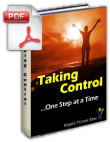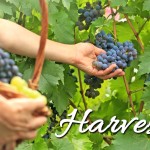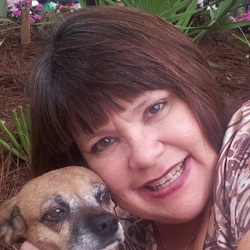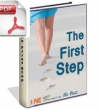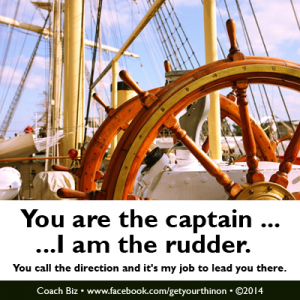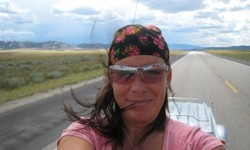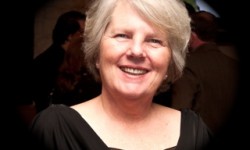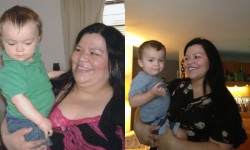 I know it’s been a while. But it’s like riding a bike. It’ll all come back to you. ~ Unknown
I know it’s been a while. But it’s like riding a bike. It’ll all come back to you. ~ Unknown
Bike riding is so commonplace we use it as a cliché for learning and retaining new skills.
This is referred to as muscle memory; however, it has nothing to do with muscles, but rather the brain.
What is muscle memory?
Permit me to explain … however, please keep in mind I am not a psychologist and this isn’t a psychology class so will do my best to explain this phenomenon and then will even show how this relates to Whole Body Health. ::giggle::
Psychologists usually divide memory definitions into two forms: discursive and procedural.
Discursive is factual memory, such as learning your times table, remembering the ABC’s, or the spelling of certain words.
Procedural memory is known as motor skills or knowing how to do things. Muscle memory is referenced under this category and is the ability to do things without thinking about it; like riding a bike, catching a ball, or playing the riff from Smoke on the Water.
These are all learned motor skills. It takes repeating the action again and again until one no longer needs to access the conscious part of the brain and the action becomes automatic.
There are three stages in the procedural memory making process:
Cognitive Stage: This is the introductory stage; you have to think about everything. For example, learning to ride a bicycle and all the steps involved. There needed to be a safe place. Your bike had to be in good working condition and appropriately sized for you, i.e., tire pressure up, brakes working, seat adjusted. There was learning to balance, pedal, how to slow down, brake, not fall down, watch for traffic and obstacles in front of you.
Dozens of things to keep in your head all at once. Remembering and executing them all seemed out of reach; almost impossible.
This cognitive stage is the first imperative step and cannot be bypassed. This is the knowing what to do, the understanding, but not yet competent. Beginners need basic and specific instructions. Feedback is vital in helping the learner know what they did wrong and how to correct the errors. The practice phase begins; doing the task over and over until one doesn’t have to think about it anymore. This stage can be frustrating and seem overwhelming at times. People sometimes give up trying; throw up their hands; and say “forget it”.
I did this with my guitar lessons, my hula lessons, and my piano lessons. I speak from experience.
With enough repetition and practice an integrated picture starts forming.
Enter the second stage:
Associative Stage: This stage is very rewarding as you are actually getting it and able to move into refining. You see improvement and are encouraged – leading to more practice. We must also consider our thought process. Practicing alone is not enough to bring about muscle memory, our thoughts associated with the practice makes that connection. Thinking and experiencing positivity is imperative in order for the new skill to stick.
For example, if while learning to ride a bike, you attach a negative association like this is stupid or I will never use this in real life; then a connection will not form between the mind and the task, and muscle memory will not be created.
How many of us did this with math? ::giggle::
Additionally, dopamine plays an important role in the associative stage. It is the neurotransmitter most responsible for accomplishing the connection and establishing muscle memory. Its release during the learning process aids in being able to remember that particular skill later on.
Keep in mind people reach the associative stage at different times, so don’t compare yourself to another.
The last stage:
Autonomous Stage: This is the skill perfecting stage distinguishing between the important from the unimportant. Decisions are quicker with almost no thought process involved. The skill is well learned and becomes second nature. New conditions may be added and situations diversified broadening your focus.
Now how in the world does this relate to Whole Body Health?
Glad you asked!
Just like bike riding, eating right for your body is a skill that can be learned and then perfected. It takes time and perseverance; however, it can be done successfully. You can get to a point where reaching for optimal food choices is done without even thinking about it.
The cognitive stage (the initial learning stage) is the most difficult; where most things can go haywire; and where most give up. This stage can’t be rushed. Going on a round of hCG and expecting to develop the skills needed to eating optimally for life simply will not happen.
Years have been spent reaching for counterproductive foods; three to six weeks on hCG does not perfecting a skill make.
Remember practice doesn’t make perfect; perfect practice makes perfect. The trick is to keep practicing choosing the right foods (and supplements) and keep doing it until it becomes automatic.
To get better at something it takes practicing the right way, and that usually means the hard way. Know this though; new brain cells will grow when using new and different strategies. This doesn’t happen by sticking to things and behaviors you already know. It’s not about how much you think you know, but whether you push yourself to learn something new and difficult.
Making optimal food choices doesn’t come naturally for most of us. It is a learned skill and one if we practice, learn from the challenging times, make adjustments continually honing that skill will result in our making healthy food choices automatic.
Question – what are you doing to achieve Whole Body Health? What focus areas and new skills will help you create this? What information and support do you need?
It’s never too late to start building new muscle memory. Caring for one’s mind, body, spirit health will become second nature. Like riding a bicycle!

